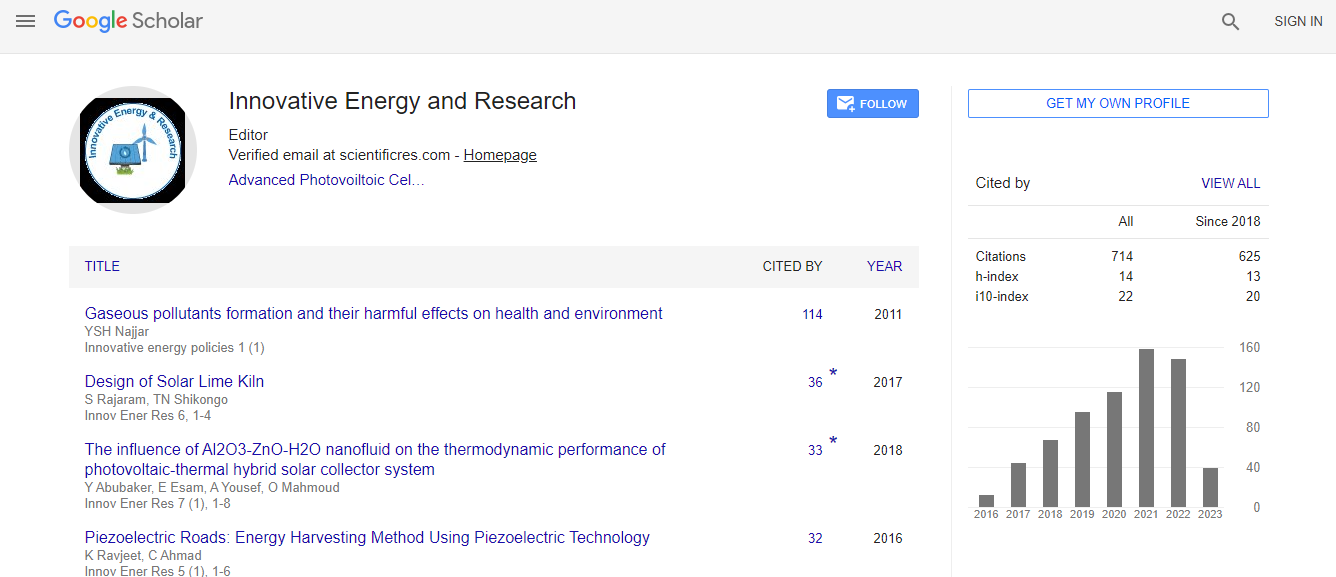Research Article
Towards Energy Efficiency and Sustainability in Academic Institutions: The Case of the University of Swaziland (UNISWA), Mbabane Campus
Alfred Francis Murye1* and Musa Gcina Sibandze21University of Swaziland, Department of Environmental Health Science, PO Box 369, Mbabane, H100, Swaziland
2Matsapha Town Council, Environment and Public Health Department, PO Box 1790, Matsapha, M200, Swaziland
- *Corresponding Author:
- Alfred Francis Murye
PhD, University of Swaziland, Department of Environmental Health Science
PO Box 369, Mbabane, H100, Swaziland
Tel: +26876049394
E-mail: amurye@gmail.com
Received date: October 27, 2017; Accepted date: April 19, 2016; Published date: April 22, 2016
Citation: Murye FA, Sibandze MG (2017) Towards Energy Efficiency and Sustainability in Academic Institutions: The Case of the University of Swaziland (UNISWA), Mbabane Campus. Innov Ener Res S1:003. doi: 10.4172/2576-1463.S1-003
Copyright: © 2017 Murye AF . This is an open-access article distributed under the terms of the Creative Commons Attribution License, which permits unrestricted use, distribution and reproduction in any medium, provided the original author and source are credited.
Abstract
An exploratory study was carried out at the UNISWA, Mbabane campus to describe the use of energy at the campus. It followed both quantitative and qualitative approaches to data collection and analysis. The campus frequently experience power cuts and surges which interrupt work and studies. Although there is a standby generator on the campus, the situation remains dire as such generator only supply a few buildings on the campus and sometimes it does not automatically turn on. The study was intended to assist UNISWA in identifying energy efficient appliances and practices in order to cut down its electricity consumption and save money. A purposive convenience stratified random sampling was used to draw a sample of 47 participants to the study from a total population of 600 (academic and non-academic staff, students and grounds men and women). This allowed a 10% margin of error and 85% confidence level and a 40% response distribution. Questionnaires and an observation checklist were used to collect data. A Watt-hour meter was used to measure the ratings of the appliances. The study found that 65% of the energy appliances used are not efficient and only 35% of the appliances are efficient. The campus is not also using energy efficiency practices as some of the respondents left electric appliances such as fans and heaters running when they leave offices (41.7%) and (16.7% respectively. If this continues unabated, the campus will continue spending on wasted energy at a substantial cost of E315 656.37 per annum. In conclusion, the UNISWA Mbabane campus is not using its energy efficiently. The study recommends that UNISWA needs to improve its energy use by reverting to energy efficient appliances and practices in order to reduce cost to the institution. It should also put in place an energy use monitoring system that can quickly identify pit holes in energy use and also conduct a full study on energy efficiency for all its campuses in order to achieve a sustainable energy future for the institution.

 Spanish
Spanish  Chinese
Chinese  Russian
Russian  German
German  French
French  Japanese
Japanese  Portuguese
Portuguese  Hindi
Hindi 
